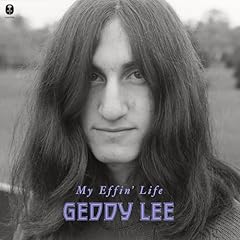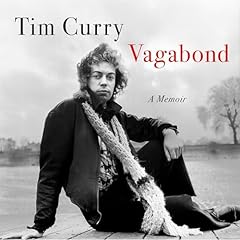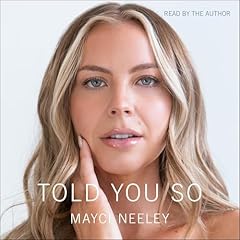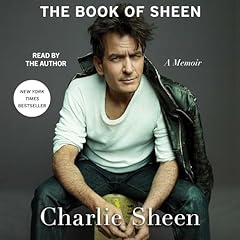
When I Grow Up
A Memoir
No se pudo agregar al carrito
Add to Cart failed.
Error al Agregar a Lista de Deseos.
Error al eliminar de la lista de deseos.
Error al añadir a tu biblioteca
Error al seguir el podcast
Error al dejar de seguir el podcast
 Exclusivo para miembros Prime: ¿Nuevo en Audible? Obtén 2 audiolibros gratis con tu prueba.
Exclusivo para miembros Prime: ¿Nuevo en Audible? Obtén 2 audiolibros gratis con tu prueba.Compra ahora por $23.21
-
Narrado por:
-
Rebecca Gibel
-
De:
-
Juliana Hatfield
By the early 90s, singer-songwriter and former Blake Babies member Juliana Hatfield was in a position most aspiring alternative rockers only dream of: her solo career was taking off. She was on the cover of Spin and Sassy; Ben Stiller directed the video for her song "Spin the Bottle" from the Reality Bites film soundtrack; she was a featured guest on My So-Called Life.
Then, after canceling a European tour to treat severe depression and failing to produce another hit, she spent a decade releasing well-reviewed albums on indie labels and performing in ever-smaller clubs. Eventually, she found herself reading The New Yorker on a filthy couch in the tiny dressing room of a punk club and asked herself, "why am I still doing this?"
No longer willing to play a kid's game by kid's rules, Hatfield resolved to take a year off and experiment with being a civilian. And that year reawakened her creative passion. She resolved to take charge of her career and write the great untapped songs that she knew were still in her. This newfound determination led directly to her eagerly awaited new album, aptly named How to Walk Away, the most energetic, polished, and creative work of her music career.
More than a musician's memoir, When I Grow Up is a rich and revealing tour through an extraordinary mind. By turns wryly funny and woundingly sincere, it recounts her best and worst days, the origins of her songs, the source of her woes, and her quest to find purpose in life.
©2020 Dreamscape Media, LLC (P)2020 Dreamscape Media, LLCLos oyentes también disfrutaron:




















Las personas que vieron esto también vieron:















For all this exposition, “When I Grow Up” has the potential to offer greater personal insight into a somewhat press-shy performer. Which makes it frustrating to discover that, for all her lyrical introspection, Hatfield seems to come up surprisingly short in the self-reflection department. The book alternates between journal-based entries for dates on the first Some Girls tour of the U.S. and some of the more noteworthy periods of her life previous to this. And for large portions of both past and present, she engages in much of the typical artistic self-deprecation and flagellation for her own perceived shortcomings: her singing; her guitar playing; her soloing; her social interactions; her choice of men; her fashion choices; her encounters with the press. In other words, not just a few select critiques of her being, but (to borrow the title of her 1995 solo record) “Only Everything”. Yikes.
And given her openness with the struggles of both depression and anorexia, this hardly seems unusual. Hatfield depicts life on the road as a series of miseries, both great and (mostly) small, that consistently suck the joy out of an already mundane existence. Every motel room is described in the most derisive terms, as though each were specifically created to mock her arrival and torment her existence. She decries the size and imperfections of the modest venues like a tour through purgatory: rider issues, dressing room shortcomings, deficient opening bands who are either too untalented or too slick or too deferential, and fans who are awkward or pushy or gushy or eccentric. Or sometimes all of the above.
It’s this last category where the book presents the greatest challenge to reader/listener enjoyment. Specifically, the relationship between Hatfield and her fans. It might be imagined that her own struggles with mental illness (and an early life marked by anxiety and familial and social challenges) would breed a degree of empathy for those who, like her, often seemed to wrestle on the fringes of stability. Yet she repeatedly chides audiences for their lack of engagement, and derides fans whose mental or social states appear even moderately imbalanced as weird and freakish and scary. The fact that this hypocrisy seems utterly lost in her tellings of various encounters becomes increasingly hard to take. Despite regularly lamenting that her day in the spotlight has passed, she still appears to expect her audience to support her chosen lifestyle/career exclusively on her terms: buy my records and merch; come to my shows; be appreciative, but don’t bother me; and give me a break, because even marginal post-stardom is hard. While she does occasionally offer her sense of how lucky she is to do what she does, it often feels like an afterthought, putting a polish on her well-constructed void of resignation over things not working out exactly as she might have hoped.
In the end, her telling is simultaneously both insightful and sobering. If anyone has glamorized the idea of being a working musician, able to actually sustain a modest living on the indie circuit, Hatfield’s writing shoots holes through the idea, or at least lets out most of the air. At the conclusion of her story, it isn’t even possible to ascertain whether she’s come close to answering: “was it all worth it?” Her sense of what some would consider a dream-come-true (namely, making a living as an original musician) seems mainly to be “it’s-not-so-bad”, with a liberal dash of “it-could-be-worse”.
The production of the audiobook is solid, clear, and well-paced. Ironically, Rebecca Gibel’s excellent narration is one of the most jarring aspects of the experience, though by no fault of hers. Gibel’s voice is crisp, animated, and confident – a sharp contrast to the tone and mood of Hatfield’s writing. This puts the narration dramatically out of step with the subject, though I’m sure finding someone to adequately capture Hatfield’s sense of ennui would be a significant challenge.
Overall, the story is interesting and somewhat detail-oriented, but often in unexpected areas and for the wrong reasons. Insight into the writing and recording process is fairly lacking (aside from an engaging account of the backstory for “My Sister”), while the daily drudgery of life as a past-her-prime (as, I again stress, she repeatedly characterizes herself) working musician is well covered – almost exhaustively. It’s not that her story isn’t worth telling or isn’t interesting, but if you’re looking for a celebration of a truly unique artist's success and talent, there’s little laudatory evidence of that on display. If you’re more inclined towards a case study in the discontent of life along the way, there’s plenty to recommend here. Just be warned that much of Hatfield’s journey can be seemingly summed up in one word: Ugly. With a capital “U”.
When growing up isn't all it's cracked up to be...
Se ha producido un error. Vuelve a intentarlo dentro de unos minutos.


